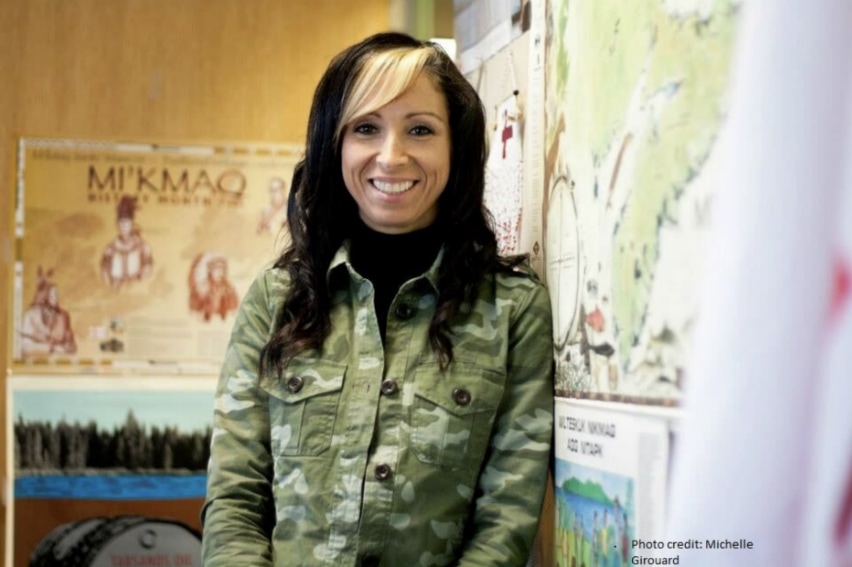
KJIPUKTUK (Halifax) – Though Canada is filled with amazing people, there are “sleeper supremacists” with a hatred of the other. These include teachers, judges and police officers, said Dr. Pam Palmater, a Mi’kmaq lawyer, author, and social justice activist from Eel River Bar First Nation in New Brunswick.
“While the US has a white supremacist problem, we have sleeper ones,” she said.
Dr. Palmater spoke at the annual fundraiser for the Canadian Centre for Policy Alternatives – Nova Scotia. Sponsored by the Mount St Vincent Faculty Union and held at the Mount, more than 225 people attended the gala on Friday, November 2nd.
Dr. Palmater has been active in First Nation issues for over 25 years on a wide range of topics such as socio-economic conditions, Aboriginal and treaty rights, and legislation impacting First Nations. Her books, Indigenous Nationhood: Empowering Grassroots Citizens and Beyond Blood: Rethinking Indigenous Identity, focus on Indigenous law, politics, and governance. A specialist in Indigenous law, Dr Palmater currently holds the Chair in Indigenous Governance at Ryerson University in Toronto.
Her talk, Reconciliation off the Rails: Where are we going wrong?, challenged the audience in a number of important ways. “We are running to do good stuff, but we haven’t done the hard stuff,” she said.
So far, Reconciliation seems to be one-sided—done by Indigenous people. Dr. Palmeter urged the audience to remember that thousands of Mi’kmaq lost their lives due to priests, police, residential schools and racism. But will Canada stop doing this?
Dr. Palmater views Reconciliation like an apology. Though no one is forced to give one, it has to be a real apology. Not only do we have to stop doing what we are doing, but we have to list what we will do to make amends. “We’re missing the Truth part, we’re missing the justice part of Reconciliation,” she noted. “There is a sad truth, what Canada did was physical, biological and cultural genocide – as noted in the Truth and Reconciliation Report.”
“We have to acknowledge the scalping bounties, even after the Indigenous people promised to live in peace and friendship. We have to acknowledge that young Mi’kmaq girls were put on ships as sex slaves. We have to acknowledge the forced sterilization of girls and women—without their knowledge and consent. Often sterilization was the price women had to pay if they wanted their children back from foster care or social services, especially in Manitoba and Saskatchewan,” she said.
The sixties scoop was not relegated to kids in the 1960s – it has affected their children and grandchildren, as they too have ended up in foster care. “Indigenous kids are four times more likely to be sexually assaulted by foster parents than by their own parents. We are 5% of the population, yet we have the highest percentage of children in foster care. In Saskatchewan 90% of the kids in foster care are Indigenous. It seems once a child is born, he or she is gone. We also have the highest suicide rate in the world in Indigenous communities in Ontario, said Palmater.
“The state has criminalized Indigenous people, it is a crime to be Indigenous. Bill C51 the Anti-Terrorism legislation was targeting Indigenous people. I was named on Sun News as one of the top five to fear in Canada! They actually published a map to my house!” Dr. Palmater said.
Dr. Palmater took exception to the fact that universities are appointing barely one or two Indigenous professors. She said universities are very proud because of these appointments – but the academics are given no resources, no help and frankly no support. She asked how are these profs supposed to do their jobs with no help? Often they don’t get promoted.
This writer knows this was the case at Saint Mary’s University, where there is no Indigenous Studies Department. Saint Mary’s hired one indigenous prof in the last few years, and gave her no support and no help. She left the university last July for a job at an Ontario university.
So what should we do?
“[You] have to look at any life threatening situation, and stop the damage. [You] have to heal wounds and make amends. Make wellness plans to go forward. As of tomorrow not a single Aboriginal kid must be allowed to be removed from their homes. Reunite all the kids in foster care with their families or communities. There must be wrap-around health care, mental health care and culture – that’s how you deal with wounds. Stop underfunding education. Return some of our lands.”
Palmater mentioned how she is often asked to speak before white audiences all across Canada who just want her to summarize the findings of the Truth and Reconciliation Commission (TRC).
“Most Canadians have the ability to read. Read it. Read the Report of the Royal Commission on Aboriginal Peoples, published in 1996. Be respectful allies – not saviours,” she concluded/
Judy Haiven is a retired professor of Industrial Relations at Saint Mary’s University. She is also a founding member of Equity Watch, an organisation dedicated to fighting discrimination and bullying in the workplace.
With a special thanks to our generous donors who make publication of the Nova Scotia Advocate possible.
Subscribe to the Nova Scotia Advocate weekly digest and never miss an article again.




How can you forget complete assassination of whole Nation – Beothuks linguistic relatives of Cree Nation !